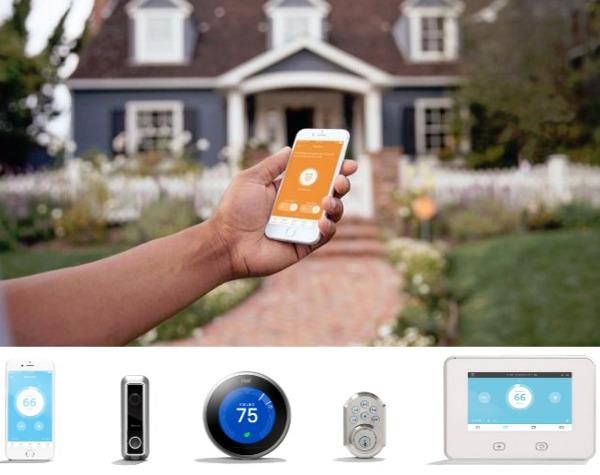I consider myself tech savvy but I feel a very large amount of these connected devices answer questions no one asked. Seems like an excuse to play with your smart phone.
Smart Home Survey Probes the Tech-Savvy and the Tech-Reluctant

With the acknowledgement of being adept at tech, comes varying degrees of smart device ownership. On average, consumers of home automation solutions own 3.4 devices with half saying they own one or two smart devices and a third owning five or more. Among these devices are connected appliances (20 percent of mentions), smart thermostats (16 percent), smart security systems (12 percent), and smart lighting solutions (10 percent).
On the flipside of the smart home coin is the one third of Americans who say they’re not comfortable with smart technology. Older generations are especially reluctant, with 39 percent describing themselves as tech novices or beginners, which may explain the finding that nearly six in 10 of survey respondents don’t have any home automation devices. And among those not using smart home solutions, 63 percent say they have no plans to do so in the future, citing cost (29 percent) and privacy (25 percent), and a third simply don’t see any benefits to home automation.
Even among those who are using smart devices at home, the survey shows that it’s still early days for home automation. More than half (54 percent) of users reported owning their smart home devices between one and three years, while 19 percent had acquired them less than a year ago.
In sharp contrast to non-users, active users of home automation see many benefits. More than a third said it makes life easier and 27 percent said it helps reduce energy costs. Still others cite a positive impact on the re-sale value of their home as a benefit.
Users of smart home technology cite apps as the most popular way to interact with their devices, according to ReportLinker, with almost half (48 percent) managing their devices this way compared with 17 percent who use a wall-mounted terminal.
While consumers have the option of managing devices through smart home hubs such as Samsung SmartThings, Amazon Echo, and Google Home, fewer than one in 10 (9 percent) of survey respondents reported using such hubs. ReportLinker believes this could change if it becomes more convenient to control home devices from a smartphone, noting that Google and Apple have developed all-in-one apps that operate multiple devices.
In analyzing survey findings, ReportLinker sees smart home solutions as changing the way we interact with computers with voice control playing a key role and serving as the first step in smart home adoption for many.
More than a third of survey respondents reported owning a voice-assisted smart speaker such as Amazon Echo or Google Home. While the most popular uses are playing music or videos (63 percent of mentions), getting the weather report (47 percent), and listening to the news (32 percent), these devices are also used to control smart home devices (28 percent of mentions) and to research a service or a product (26 percent).
Even so, all is not rosy when it comes to the public’s view of voice-assisted smart speakers. Two thirds of survey respondents said they are unlikely to buy one in the near future, although women are far more interested in doing so than men, with 42 percent saying they are likely to buy one compared with 76 percent of men who said they are not interested. What’s more, 71 percent of those who own voice-assisted smart speakers reported using them fewer than three times a day.
ReportLinker conducted the survey online in early May and reached 508 online respondents described as representative of the U.S. population.
- Log in or register to post comments


























































